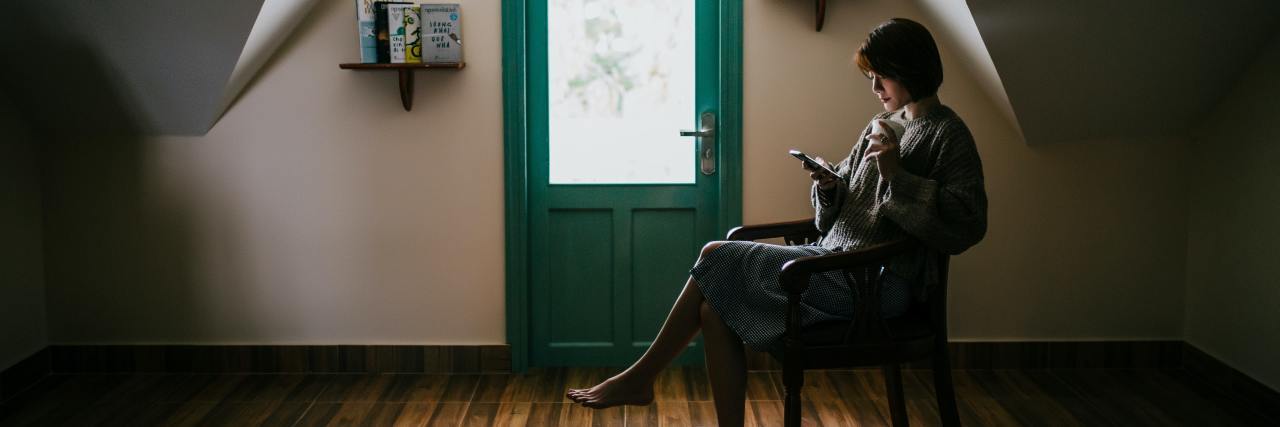How Isolation Can Actually Be a Healthy Coping Mechanism for Mental Illness
Editor's Note
If you’re struggling with self-judgment, check out The Mighty’s No Shame group. It’s a safe space to share how you’re feeling with other people who get it.
As someone with schizoaffective disorder, I find myself isolating more than the average neurotypical person. I notice it, and my friends and family notice it. For me, isolation is a critical part of being able to function on a day-to-day basis, yet there are so many people (doctors, therapists, advocates, etc.) who find isolation dangerous and unhealthy. Let me acknowledge I agree with them — sometimes. Sometimes it is dangerous and unhealthy, but sometimes it is what I need to get by without a public episode.
I also would like to mention if you or someone you know starts isolating when this is not a typical behavior for them, you should be keen about keeping an eye on them or seeking help for yourself. Isolation can be a sign of depression and other mental health issues.
I was always made to feel like isolation was this awful symptom of my mental illness until my therapist explained to me that, for the most part, I was using isolation as a healthy coping mechanism. In comparison to some other methods I had used in the past, she felt that isolation was actually one of the best ways I deal with paranoia, delusions and severe periods of irritation.
My main isolation space is my bedroom. This helps me by giving me a space where everything is familiar. If I have any visual or auditory hallucinations in that space, I am able to recognize it more quickly than I would in a public space. I know where everything is in my room and if someone or something that isn’t supposed to be there, is there, I am able to recognize that (for the most part) and move on with my day.
Paranoia plays a big role in how I go about my day. The more paranoid I feel, the less I want to be out in public. I do not underestimate the power of paranoia. The constant feeling people are talking about me, out to get me or have secret motives for me is debilitating. If I feel the slightest bit paranoid, I know a stroll around town is probably not the best idea. The more paranoid I am, the more likely it is I become irritated. It causes me to reach a level of irritation that typically results in a public outburst. This is embarrassing and hard to explain without feeding into the stigma that accompanies psychotic disorders. Keeping to myself on days where I feel like this, makes me feel better and prevents me reaching that level of distress.
It makes sense I would want to be around less people, so why doesn’t it make sense to others?
Long periods of isolation can tend to make people pity the isolator because, from their point of view, the isolator is lacking social interaction. Most people get satisfaction from being around friends and family often. Personally, the “typical” amount of social interaction people require is too high for me. Isolation is my way of cooling off and keeping my mood neutral. I become extremely irritated when people come into my space unannounced because they have disrupted my safe space.
When living with a combination mood and thinking disorder, stimulation can cause symptoms to intensify. Periods of isolation can be beneficial so long as they are used as a healthy coping strategy. I enjoy reading, writing and connecting with friends through social media. Just because I am physically isolating does not mean I lack meaningful relationships and hobbies. I don’t feel my isolation warrants pity as I find isolation is a necessary part of managing my mental illness.
I want people to know isolation does not make me feel lonely. I know for some people that is not the case, but for me, isolation is something I use to ground myself and maintain my mood. Isolation in moderation can be used as a healthy coping mechanism most people would find taboo. Creating a safe space for my mental illness, where I don’t have to constantly be masking, improves my quality of life and allows me to be the best version of myself that I can offer.
Unsplash image by Anthony Tran

